Home>Garden Essentials>What Does The Bible Say About Seeds
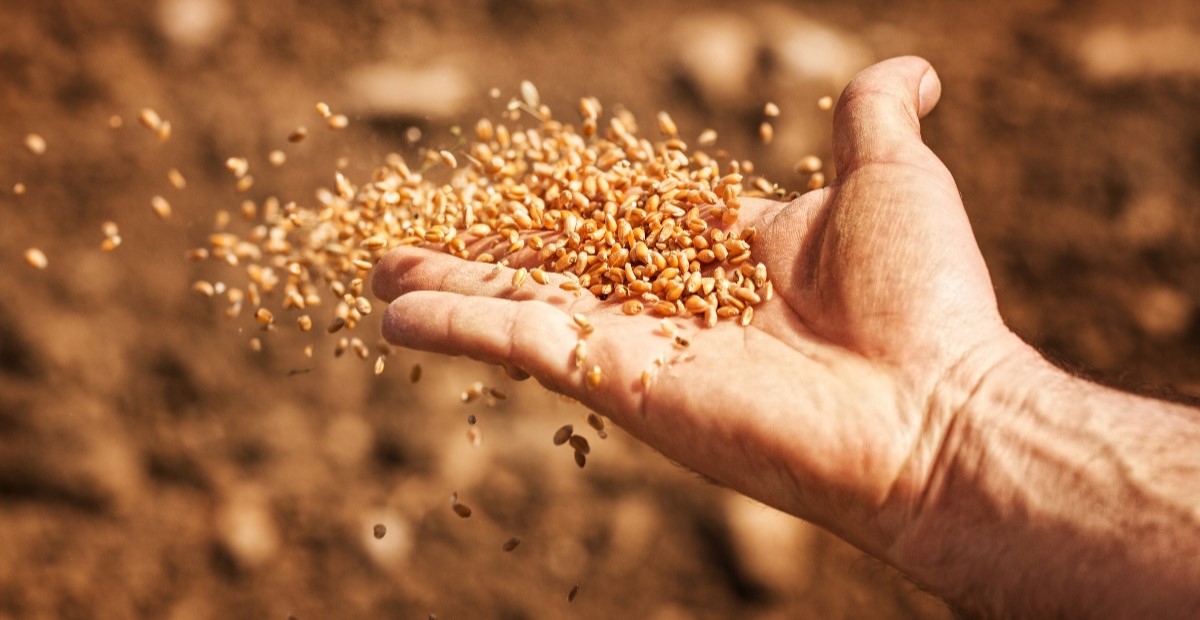

Garden Essentials
What Does The Bible Say About Seeds
Modified: March 16, 2024
Discover what the Bible teaches about sowing seeds in your garden and unlocking spiritual growth. Uncover God's wisdom for cultivating a bountiful harvest.
(Many of the links in this article redirect to a specific reviewed product. Your purchase of these products through affiliate links helps to generate commission for Storables.com, at no extra cost. Learn more)
Introduction:
Welcome to the fascinating world of seeds! In the intricate tapestry of nature, seeds play a vital role in the cycle of life. From the tiniest dandelion seed floating on the breeze to the majestic oak tree growing from an acorn, seeds hold the promise of new beginnings and abundant growth.
In addition to their physical significance, seeds also hold symbolic meaning in various cultures and religious traditions. In this article, we will explore the spiritual significance of seeds as described in the Bible. Join us on this journey as we delve into the profound teachings and mysteries surrounding seeds in the sacred text.
Before we dive deeper into the biblical perspective, let’s first define what exactly a seed is. In botanical terms, a seed is the reproductive structure of a plant that contains the potential to develop into a new plant. It consists of an embryo, nutrients, and a protective covering.
Now that we have a clear understanding of what seeds are, let’s explore the symbolic significance they hold in the Bible. Seeds are frequently used as metaphors to convey profound spiritual truths and lessons.
“And he said, ‘The kingdom of God is as if a man should scatter seed on the ground. He sleeps and rises night and day, and the seed sprouts and grows; he knows not how.’” – Mark 4:26-27 (ESV)
This powerful analogy of seeds represents the mysterious and miraculous nature of God’s kingdom. Just as a farmer scatters seeds and trusts in the unseen process of growth, believers are called to sow the seeds of faith and trust in God’s providence.
In the parable of the sower, Jesus teaches a valuable lesson about the different reactions people have to the seeds of the gospel. Some seeds fall on the wayside and are immediately devoured by birds, representing those who hear the message but quickly dismiss it. Other seeds fall on rocky ground and wither away, symbolizing those who receive the word with joy but lack deep roots to sustain their faith. Still, other seeds fall among thorns, depicting individuals whose faith is choked by the concerns of this world. Finally, there are seeds that fall on good soil, producing a bountiful harvest, representing those who receive the word with an open heart and bear spiritual fruit.
Key Takeaways:
- Seeds in the Bible symbolize growth, faith, and God’s promises. Just like planting seeds in a garden, nurturing our faith and sharing kindness can lead to a bountiful harvest of goodness.
- The Parable of the Sower and the Mustard Seed teach us about the transformative power of faith, reminding us that even small acts of kindness and faith can have a big impact.
Read more: What Does The Bible Say About Crop Rotation
Definition of Seeds:
Seeds are the fundamental building blocks of plant life. They contain the genetic material necessary for reproduction, growth, and the development of new plants. In botanical terms, a seed is defined as the mature and fertilized ovule of a flowering plant.
Seeds come in a vast array of shapes, sizes, and structures, adapted to the specific needs of different plant species. They can be as small as a grain of sand or as large as a coconut. Some seeds have a hard outer coating, while others have a soft shell. The inner part of a seed, called the embryo, is the tiny plant waiting to emerge and grow.
Seeds are the result of the pollination process, where male reproductive cells (pollen) fertilize the female reproductive cells (ovules) in the flower. This fusion of genetic material forms the seed. Once the seed is formed, it enters a dormant state, waiting for the right conditions to germinate and begin its growth journey.
Seeds are remarkable in their ability to withstand harsh conditions, such as extreme temperatures, drought, and even being buried in the soil for long periods. This extraordinary resilience ensures that plants can colonize diverse environments and propagate their species.
Moreover, seeds serve as a means of dispersal, allowing plants to spread their offspring far and wide. Some seeds are dispersed by wind, like the feathery seeds of dandelions. Others rely on animals, such as the burrs that stick to fur and hitch a ride to new locations. Water can also carry seeds, as seen with coconuts drifting across the ocean to find habitable shores.
Seeds play a crucial role in agriculture, providing food and sustenance for humans and animals alike. Farmers carefully select and cultivate seeds to ensure desired traits and high crop yields. Seed banks around the world store and protect a vast collection of seeds, safeguarding biodiversity and preserving plant species for future generations.
Beyond their physical attributes and agricultural importance, seeds hold symbolic significance across various cultures and belief systems. In the Bible, seeds are rich with spiritual meaning, representing the potential for growth, fertility, and the spread of faith.
Now that we have explored the definition and broader significance of seeds, let us delve into the symbolic representation of seeds in the biblical context.
Symbolism of Seeds in the Bible:
In the Bible, seeds hold deep symbolic meaning and are used as metaphors to convey profound spiritual truths. They represent the potential for growth, fertility, and the manifestation of God’s promises.
One of the most well-known parables about seeds is found in Matthew 13:1-23 and is commonly referred to as the Parable of the Sower. In this parable, Jesus compares the spreading of the gospel message to a sower scattering seeds on different types of soil. The seeds symbolize the Word of God, the message of salvation and redemption.
In the parable, the seed that falls on the wayside represents people who hear the message but do not understand or accept it. The birds that quickly devour the seed symbolize Satan’s influence, snatching away the word from their hearts.
The seed that falls on rocky ground represents those who hear the message and receive it with joy but lack depth and endurance. They may initially embrace the faith but quickly lose their devotion when faced with challenges or persecution.
The seed that falls among thorns signifies individuals who hear the word but allow worldly cares and distractions to choke the growth of faith. They are consumed by the pursuit of wealth, worries, and the pleasures of life, hindering their spiritual development.
Finally, the seed that falls on good soil represents those with open and receptive hearts. They not only hear and understand the message but also internalize it, allowing it to take root and bear fruit in their lives. They become the faithful followers of Christ, showing love, compassion, and living according to God’s will.
Another prominent biblical reference to seeds is found in the parable of the mustard seed (Matthew 13:31-32). Jesus compares the kingdom of heaven to a tiny mustard seed that grows into a large tree, providing shelter for the birds. This parable emphasizes the remarkable growth and impact that can come from humble beginnings.
The mustard seed, one of the smallest seeds in the region, represents the unassuming nature of faith. It highlights the potential for powerful spiritual transformation and widespread influence, even from the most modest beginnings. It teaches us that no matter how insignificant or small our efforts may seem, with God’s blessing, they can yield remarkable results.
Seeds in the Bible also symbolize the promise and blessings of God. In Genesis 8:22, God promises that “while the earth remains, seedtime and harvest…shall not cease.” This verse emphasizes God’s faithfulness and provision for humanity, ensuring that the cycle of sowing and reaping will continue indefinitely.
Furthermore, the concept of sowing and reaping extends beyond physical crops. In Galatians 6:7, the apostle Paul states, “whatever one sows, that will he also reap.” This verse emphasizes the spiritual principle of sowing good deeds and reaping positive outcomes. It speaks to the consequences of our actions, highlighting the importance of cultivating righteousness and nurturing the seeds of love, kindness, and compassion.
In summary, seeds in the Bible hold powerful symbolic significance. They represent the potential for growth, fertility, and the manifestation of God’s promises. They serve as metaphors for the spreading of the gospel, the transformative power of faith, and the consequences of our actions. The lessons we can learn from seeds urge us to cultivate receptive hearts, sow seeds of goodness, and trust in the providence and faithfulness of God.
The Parable of the Sower:
One of the most well-known parables spoken by Jesus is the Parable of the Sower, recorded in Matthew 13:1-23, Mark 4:1-20, and Luke 8:4-15. This parable uses the imagery of seeds and different types of soil to teach profound spiritual truths about the reception and growth of the gospel message.
In this parable, Jesus describes a sower who goes out to scatter seeds on various types of soil. As the seeds land, they represent the spread of the Word of God, the message of salvation and redemption. The four different types of soil on which the seeds fall symbolize the different responses people have to the message of the gospel.
The first type of soil is the wayside or hard path. This represents those who hear the word but do not understand it. Their hearts are hardened, and the devil is able to snatch the seed away before it can take root. These individuals are easily swayed by worldly influences and fail to grasp the depth of God’s truth.
The second type of soil is the rocky ground. It represents those who receive the word with joy but lack depth and endurance. They may initially embrace the faith but quickly fall away when faced with persecution or hardships. Their shallow commitment prevents the seeds of the gospel from taking root and flourishing in their lives.
The third type of soil is the ground filled with thorns. This symbolizes people who hear the word, but the cares and distractions of the world choke the growth of their faith. The worries, desires, and pursuit of material possessions suffocate the message, preventing it from bearing fruit in their lives.
The fourth and final type of soil is the good ground. This represents individuals who not only hear the word but also understand and accept it. They have receptive hearts and allow the message to take root in their lives. These faithful believers produce a bountiful harvest, yielding spiritual fruit and impacting others positively through their transformed lives.
Through the Parable of the Sower, Jesus teaches us important lessons about the condition of our hearts and our response to the Word of God. It highlights the importance of cultivating a receptive heart, free from hardness, shallowness, and distraction.
Furthermore, this parable encourages us to examine our own lives and consider how we receive and nurture the seeds of the gospel. Are we easily swayed by worldly influences? Do we lack depth and endurance in our faith? Are we allowing worries and desires to overshadow our spiritual growth? Or are we nurturing a heart that embraces the Word, allowing it to take root and bear fruit in our lives?
Ultimately, the Parable of the Sower challenges us to be intentional about our spiritual journey. It reminds us that the Word of God is powerful and transformative, but its impact is dependent on the condition of our hearts. By cultivating a receptive heart and actively nurturing the seeds of faith, we can experience the abundant growth and spiritual fruitfulness that God desires for us.
The Parable of the Mustard Seed:
The Parable of the Mustard Seed is a well-known parable spoken by Jesus, found in Matthew 13:31-32, Mark 4:30-32, and Luke 13:18-19. In this parable, Jesus uses the imagery of a mustard seed to illustrate the remarkable growth and impact of the kingdom of heaven.
Jesus begins the parable by stating that the kingdom of heaven is like a mustard seed, which is known to be one of the smallest seeds. However, despite its small size, the mustard seed grows into a mighty tree, providing shelter and a nesting place for birds.
This parable serves as a powerful illustration of the transformative power of faith and the potential for remarkable growth even from the most humble beginnings. The mustard seed, seemingly insignificant at first glance, represents the unassuming nature of faith itself.
Just as the mustard seed starts small and seemingly insignificant, so too does our faith. Our initial steps of belief may feel fragile and uncertain, but when nurtured and cultivated, they have the potential to develop into something incredible.
Through this parable, Jesus encourages his followers to trust in the power and potential of their faith, no matter its size. He assures them that even a small seed of faith, when embraced and nurtured, can grow into something mighty and impactful, just like the mustard seed becomes a large tree.
Furthermore, the Parable of the Mustard Seed highlights the expansive and inclusive nature of the kingdom of heaven. Just as the mustard tree provides shelter and nesting places for birds of all kinds, the kingdom of heaven welcomes and embraces people from all walks of life.
Jesus teaches that the growth and impact of the kingdom of heaven are not limited by worldly standards or expectations. It transcends barriers and reaches beyond the boundaries of human understanding, offering hope, transformation, and restoration to all who seek it.
This parable also serves as a reminder to us that our faith, no matter how small it may seem, has the potential to make a difference in the world. Our acts of love, kindness, and compassion, rooted in our faith, can have far-reaching effects, bringing light and hope to those around us.
Overall, the Parable of the Mustard Seed teaches us that faith, no matter its size, has the power to grow and impact the world in significant ways. It reminds us to have faith in the potential for growth and transformation, both in our personal lives and in the larger context of God’s kingdom.
So let us embrace the humble mustard seed, with its immense potential, and trust in the power of our faith to bring about positive change. May we be encouraged to nurture and cultivate our faith, allowing it to grow into something that blesses and impacts the world around us.
Planting seeds of kindness and love can lead to a bountiful harvest of joy and fulfillment in your life. Just as a farmer sows seeds to reap a good harvest, we can sow positive actions to reap positive outcomes.
Read more: What Does The Bible Say About Table Manners?
Seeds as a Metaphor for Spiritual Growth:
Seeds have long been used as a powerful metaphor for spiritual growth in religious and philosophical teachings. In the context of our spiritual journey, seeds symbolize the potential for transformation, renewal, and the development of a deeper relationship with the divine.
Just as a seed contains everything necessary for a plant to grow and flourish, we have within us the seeds of spiritual potential. These seeds represent our innate capacity for love, compassion, wisdom, and connection with the sacred.
Similar to how seeds require the right conditions for growth, our spiritual growth demands nurturing, intentional effort, and the cultivation of practices that nourish our soul. This can include prayer, meditation, study of sacred texts, acts of kindness, and seeking spiritual community.
Like the stages of a seed’s growth, our spiritual journey unfolds gradually. We begin with a small seed of curiosity or an initial spark of faith. As we tend to the seed within us, nurturing it with intention and dedication, it begins to germinate and sprout.
As the sprout pushes through the soil, we may experience moments of insight, clarity, and spiritual awakening. These moments provide glimpses of the transformative power that lies within us, giving us the encouragement to continue on our path of growth.
As the plant grows, developing roots and branches, we too deepen our connection with the divine and expand our understanding of ourselves and the world around us. Our spiritual growth allows us to tap into our inherent wisdom, compassion, and authenticity, enabling us to live a life aligned with our deepest values.
Just as a plant bears fruit or flowers, our spiritual growth yields the fruits of love, peace, joy, and a greater sense of purpose. These fruits manifest in our relationships, our actions, and the positive impact we have on the world.
However, the journey of spiritual growth is not without challenges. Just as a plant may face obstacles such as storms or drought, we may encounter difficulties and setbacks along our path. These challenges are opportunities for learning, resilience, and strengthening our faith.
Ultimately, seeds as a metaphor for spiritual growth remind us that the potential for transformation resides within us. Like a gardener tending to a garden, we have the power to nurture and cultivate our spiritual growth through intentional practices and a sincere desire for connection with the divine.
As we allow our spiritual seeds to take root and grow, we discover the abundance of grace, wisdom, and love that awaits us. So let us embrace the metaphor of seeds and embark on a journey of spiritual growth, trusting that with persistence, patience, and a steadfast heart, we can experience profound transformation and become the fullness of who we are meant to be.
God’s Promises and Blessings as Seeds:
In the realm of spirituality, God’s promises and blessings are often likened to seeds. Just as seeds hold the potential for growth and abundance, God’s promises and blessings offer the hope of fulfillment, provision, and spiritual abundance in our lives.
Throughout the Bible, God makes numerous promises to His people, assuring them of His love, faithfulness, and provision. These promises serve as seeds planted in our hearts, waiting to take root and bear fruit in due time.
One of the foundational promises in the Bible is God’s promise to Abraham in Genesis 12:2-3: “I will make you into a great nation, and I will bless you…and all peoples on earth will be blessed through you.” This promise not only encompasses physical blessings but also represents the spiritual blessing of salvation and redemption through Jesus Christ.
God’s promises are often described as seeds because, like seeds, they carry within them the potential for growth, transformation, and the fulfillment of divine purposes. When we receive and believe these promises, they take root in our hearts and nourish our faith.
However, just as seeds require time and the proper conditions to grow, so too do God’s promises unfold in His perfect timing. In the waiting period, our faith is strengthened and refined as we trust in God’s faithfulness and sovereignty.
Moreover, God’s blessings are also likened to seeds. They are bestowed upon us with the intention of multiplying and benefiting not only ourselves but also others around us. When we receive God’s blessings, they have the potential to overflow and bring blessings to those around us, just as a single seed can produce a bountiful harvest.
God’s blessings encompass various aspects of our lives, including physical, emotional, and spiritual well-being. They may manifest as material provision, healing, restoration, guidance, peace, joy, and a deep sense of His presence in our lives.
As we cultivate an attitude of gratitude and embrace God’s promises and blessings as seeds, our perspective shifts from scarcity to abundance. We begin to view life through the lens of hope and trust, knowing that God is faithful to bring about His promises and shower us with blessings according to His perfect plan.
However, it is important to remember that God’s promises and blessings are not meant to be hoarded or consumed selfishly. Rather, they are intended to be shared and used to bless others. Just as a fruit-bearing tree provides sustenance and shade to those around it, we are called to share God’s blessings with generosity and compassion.
As we embrace God’s promises and recognize His blessings as seeds, we can cultivate a mindset of trust, gratitude, and fruitfulness. We can actively participate in the growth and multiplication of these seeds by nurturing our relationship with God, seeking His guidance, and aligning our lives with His purposes.
So let us hold fast to God’s promises, allowing them to take root in our hearts and transform our lives. Let us embrace His blessings with gratitude and share them generously with others, becoming channels of His love and grace in the world.
Planting Seeds of Faith:
Planting seeds of faith is an essential aspect of our spiritual journey. Just as a gardener sows seeds in the ground with the expectation of growth and harvest, we are called to sow seeds of faith in our hearts and the hearts of others, trusting in God’s provision and the transformative power of belief.
When we plant seeds of faith, we are intentionally cultivating a connection with the divine. This involves nourishing our relationship with God through prayer, meditation, and the study of sacred texts. It also entails embracing spiritual practices that deepen our understanding and strengthen our faith.
Planting seeds of faith requires us to create the right environment for growth. Just as seeds need fertile soil, sunlight, and water to flourish, our faith requires nourishment, illumination, and the living water of God’s Spirit.
We can nourish our faith by immersing ourselves in uplifting and edifying spiritual teachings. Surrounding ourselves with a community of believers provides support, encouragement, and accountability in our faith journey.
Additionally, allowing our faith to be illuminated means seeking divine guidance and wisdom. It involves being open to the transformative work of the Holy Spirit, who brings enlightenment, conviction, and clarity to our spiritual path.
As we plant seeds of faith, we also recognize the importance of patience and perseverance. Just as seeds take time to sprout and grow, spiritual growth is a gradual process that requires steadfastness and trust in God’s timing.
Planting seeds of faith is not only for our personal benefit but also for the sake of others. When we share our faith authentically and compassionately, we plant seeds in the hearts of those around us, inviting them to embark on their own spiritual journey.
Our words, actions, and the witness of our lives can serve as seeds of inspiration and hope for others. By showing love, kindness, and living out our faith, we create an environment where the seeds of faith can take root and flourish in the lives of others.
Simultaneously, while we plant seeds in the hearts of others, we must realize that the growth of faith is ultimately in the hands of God. We cannot force or manipulate someone’s faith journey. Instead, we trust in the work of the Holy Spirit to nurture and bring the seeds to fruition in His own time.
Planting seeds of faith is a continual process. It involves a lifelong commitment to nurturing and cultivating our own faith while sowing seeds in the lives of others. It requires a humble attitude, recognizing that we are instruments in the hands of God, and it is by His grace that the seeds of faith can grow and bear fruit.
So, let us embrace the call to plant seeds of faith in our hearts and share them with others. May we cultivate an environment conducive to growth, trust in God’s timing, and allow His Spirit to nurture and bring forth a bountiful harvest of faith in our lives and the lives of those around us.
Nurturing Seeds of Goodness:
In our journey through life, we have the opportunity to nurture seeds of goodness within ourselves and cultivate a world filled with love, kindness, and compassion. Just as a gardener tends to their plants, we are called to nurture and grow seeds of goodness in our thoughts, actions, and relationships.
The seeds of goodness can take many forms, such as acts of kindness, empathy, forgiveness, generosity, and compassion. When we intentionally plant and nurture these seeds, we not only enhance our own well-being but also positively impact the lives of others.
Nurturing seeds of goodness begins with cultivating awareness and mindfulness. We can start by examining our thoughts, words, and actions, ensuring that they align with values such as love, integrity, and respect. By sowing seeds of positive intention, we create a fertile ground for goodness to take root and flourish.
This nurturing process also involves practicing empathy and understanding towards others. By seeking to understand different perspectives and extending grace, we sow seeds of compassion and forge deeper connections with those around us.
Furthermore, nurturing seeds of goodness requires us to let go of negativity and cultivate a positive mindset. Just as we weed a garden to create space for healthy growth, we need to uproot negative thoughts, judgments, and attitudes that hinder the nurturing of goodness within us.
As we nurture seeds of goodness, it is crucial to nourish our own well-being. Just as plants need water and sunlight, we need self-care and a healthy inner life to sustain and nourish our ability to sow goodness. Engaging in activities that replenish our energy, such as practicing gratitude, self-reflection, and seeking spiritual nourishment, provides the nutrients that enable us to continue nurturing seeds of goodness.
A vital aspect of nurturing seeds of goodness is modeling and inspiring others to do the same. Like a beautiful garden that captivates and inspires passersby, our actions and example can encourage others to cultivate their own seeds, creating a ripple effect of positivity and goodness in the world.
It is essential to remember that the nurturing process takes time and patience. Just as a garden requires consistent care and attention, nurturing seeds of goodness requires perseverance and a long-term commitment. We may not always see immediate results, but with faith and persistence, the seeds we sow will grow and bear fruit in due time.
In nurturing seeds of goodness, we must also be mindful of the collective responsibility to create a more compassionate and just society. By advocating for social justice, standing up against oppression, and promoting equality, we sow seeds that sow the seeds of goodness in our communities and beyond.
Ultimately, nurturing seeds of goodness is an active choice we make every day. It is a commitment to living in alignment with our values and seeking opportunities to make a positive difference in the lives of others. By tending to the seeds of goodness within us and nurturing them with care, we create a world that is more compassionate, loving, and harmonious.
So, let us embrace the power within us to nurture seeds of goodness. May we cultivate a garden of love, kindness, and compassion, spreading the seeds of goodness far and wide, and inspire others to do the same. Together, we can create a world that flourishes with the beautiful fruits of goodness.
Conclusion:
The symbolism of seeds in the Bible runs deep, representing the potential for growth, transformation, and the fulfillment of divine promises. We have explored the various facets of seeds in the spiritual context, from their representation as the Word of God to the transformative power of faith and the blessings that God bestows upon us.
Seeds serve as a metaphor for our spiritual journey, reminding us of the need to cultivate receptive hearts, plant the seeds of faith, and nurture them with intention and dedication. Just as a seed requires the right conditions to germinate and grow, our faith thrives when we nourish it with prayer, study, fellowship, and a profound trust in God’s faithfulness.
Through the Parable of the Sower, we have learned the importance of sowing the seeds of the gospel, recognizing that the growth and receptivity of faith in others is ultimately in God’s hands. As we plant seeds of faith, we also embrace the humility and patience required, understanding that spiritual growth is a gradual process that requires trust in God’s timing and provision.
Furthermore, the Parable of the Mustard Seed has taught us that faith, even in its smallest form, can have a significant impact and grow into something mighty. The mustard seed’s growth represents the transformative power of our faith, and it inspires us to trust in the potential for remarkable growth, even from the most humble beginnings.
God’s promises and blessings are like seeds, carrying the potential for growth and provision. Nurturing these seeds involves embracing them with gratitude, trusting in their fulfillment, and sharing the blessings with others generously. As we cultivate an attitude of abundance and acknowledge His promises, we witness the fruits of His faithfulness and provision in our lives.
In sowing seeds of goodness, we contribute to creating a more compassionate and loving world. By intentionally nurturing seeds of kindness, compassion, forgiveness, and generosity within ourselves and inspiring others to do the same, we become catalysts for positive change and the embodiment of God’s love in the world.
As we conclude our exploration of the significance of seeds in the Bible, let us be reminded of the transformative power that lies within us. Let us continue to plant seeds of faith, hope, and love, knowing that with God’s guidance and provision, these seeds will flourish and bring forth a bountiful harvest in our lives and in the lives of others.
May we nurture the seeds of goodness, trusting in the growth and impact they can have in our own lives and our communities. And as we embrace this journey, let us be encouraged that each seed we sow, each act of kindness, and each step of faith has the potential to make a profound and lasting difference.
So, let us continue sowing the seeds of faith, nurturing the seeds of goodness, and trusting in the Divine Gardener to bring forth abundant growth in our lives and in the world around us.
Frequently Asked Questions about What Does The Bible Say About Seeds
Was this page helpful?
At Storables.com, we guarantee accurate and reliable information. Our content, validated by Expert Board Contributors, is crafted following stringent Editorial Policies. We're committed to providing you with well-researched, expert-backed insights for all your informational needs.

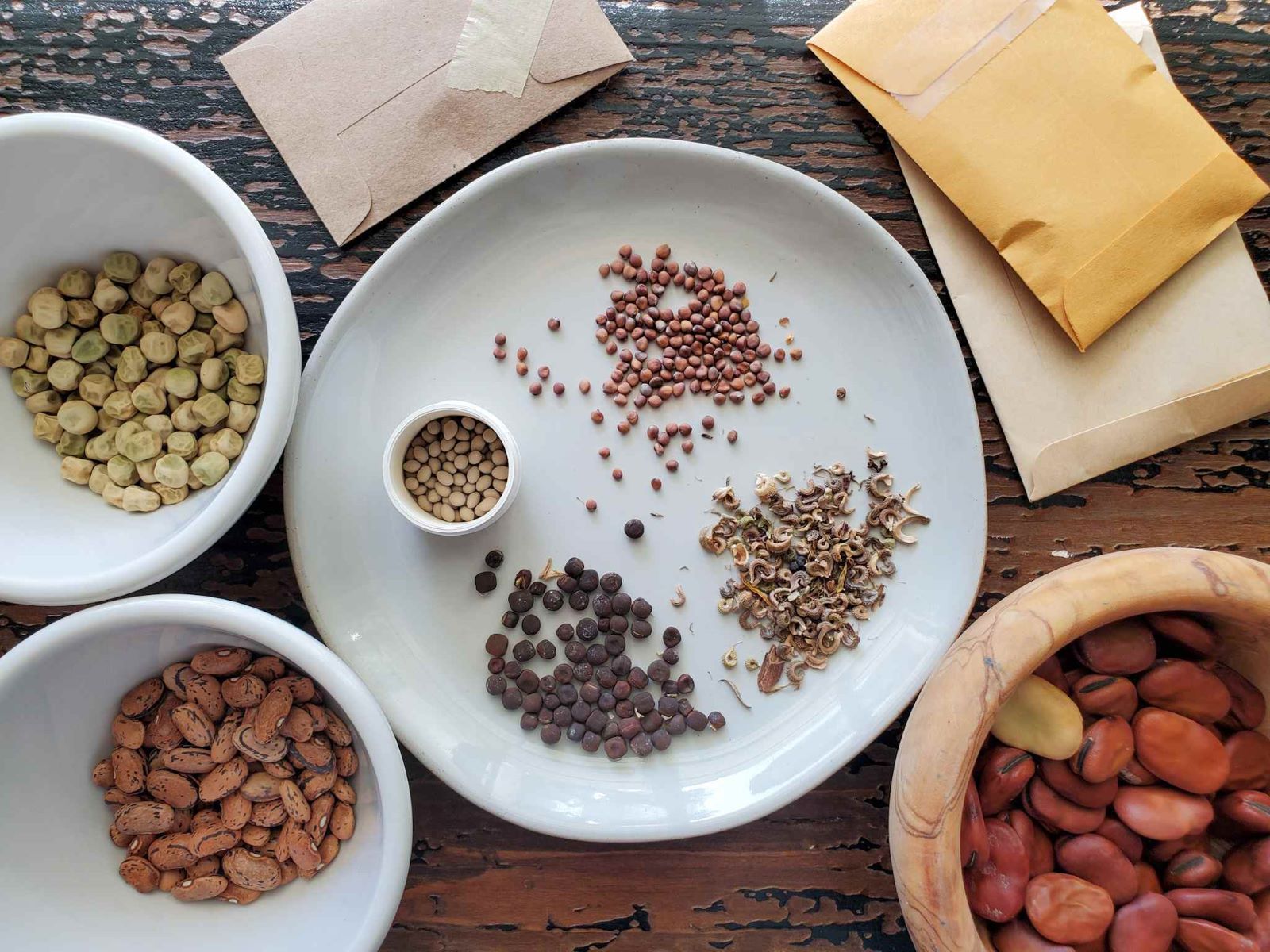

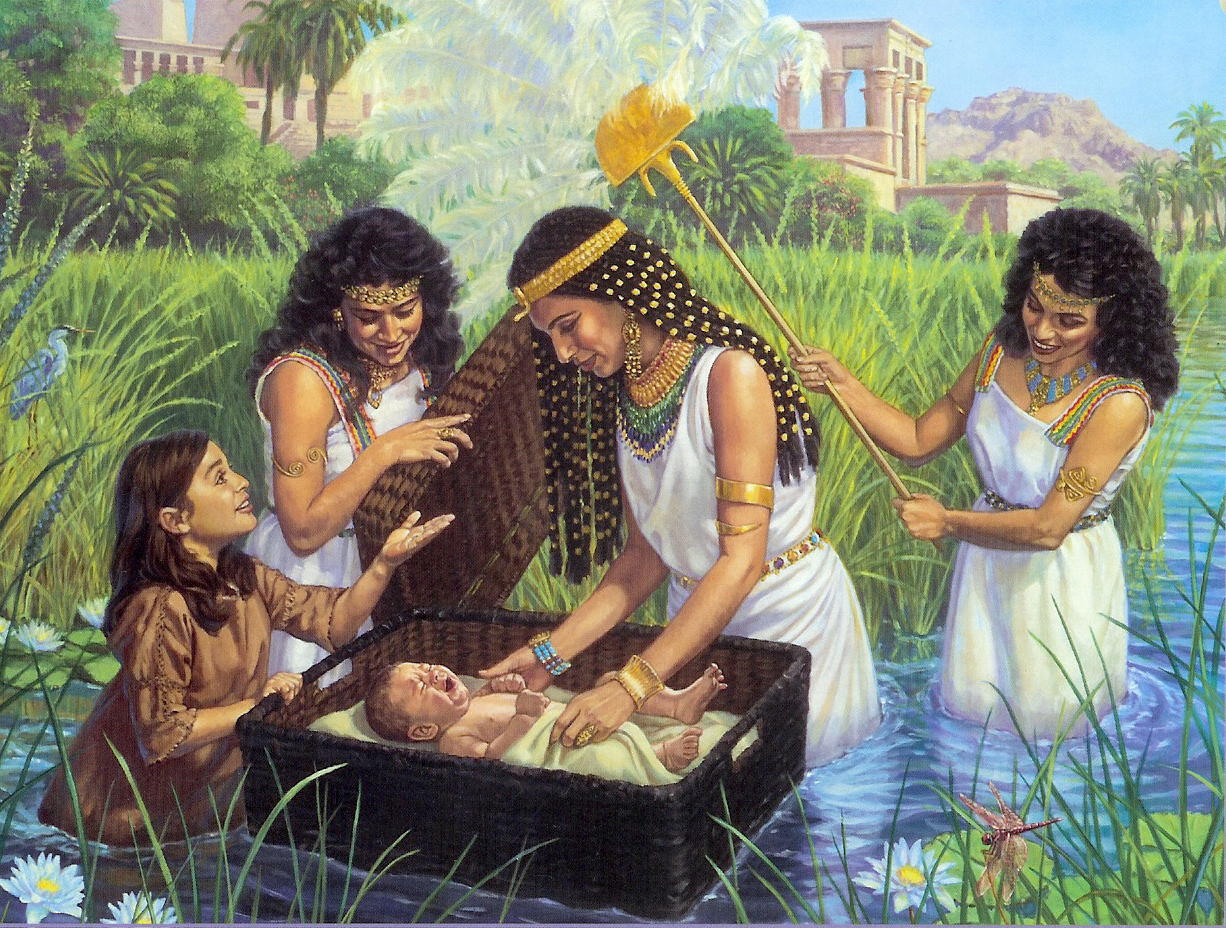
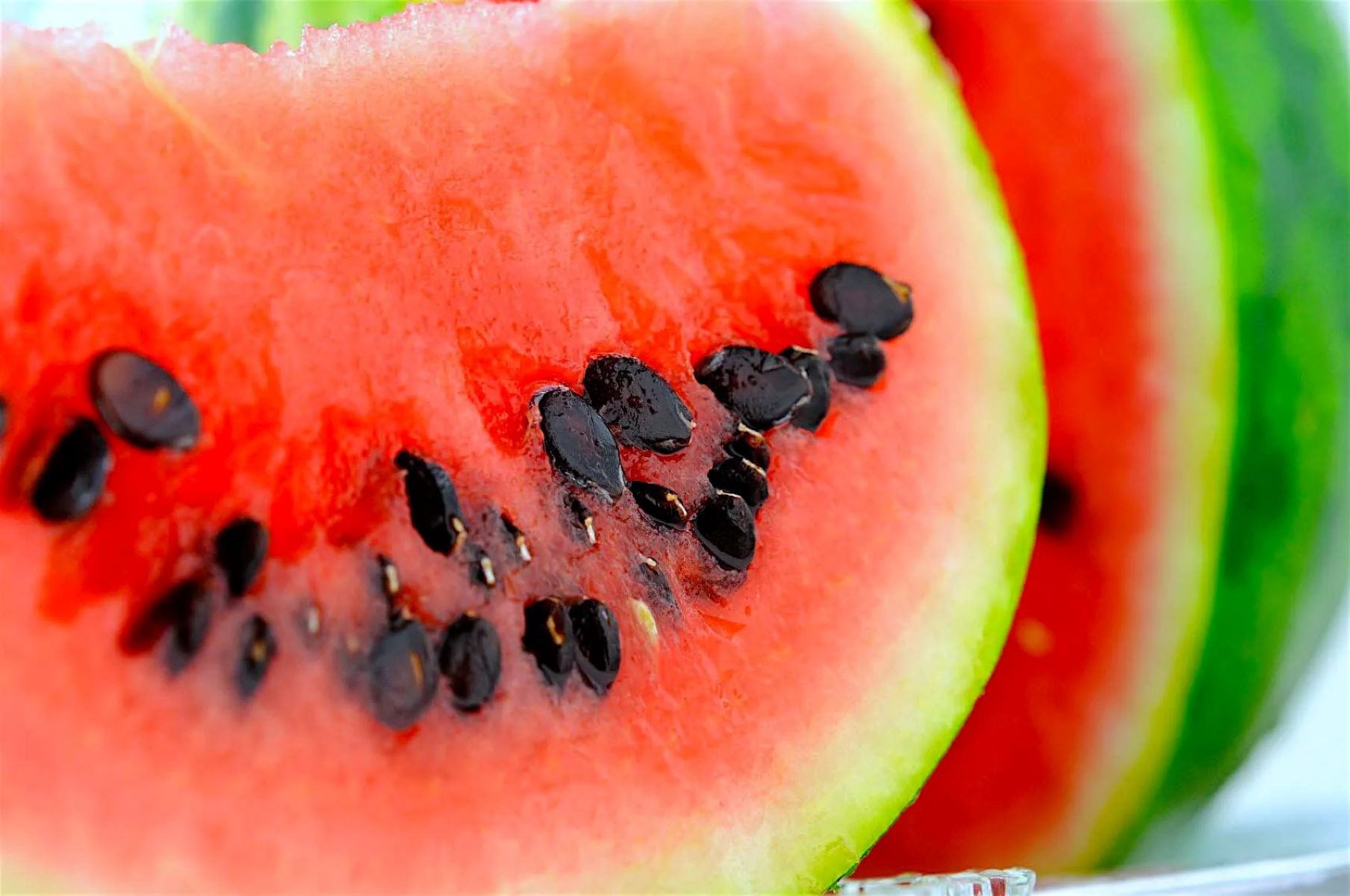


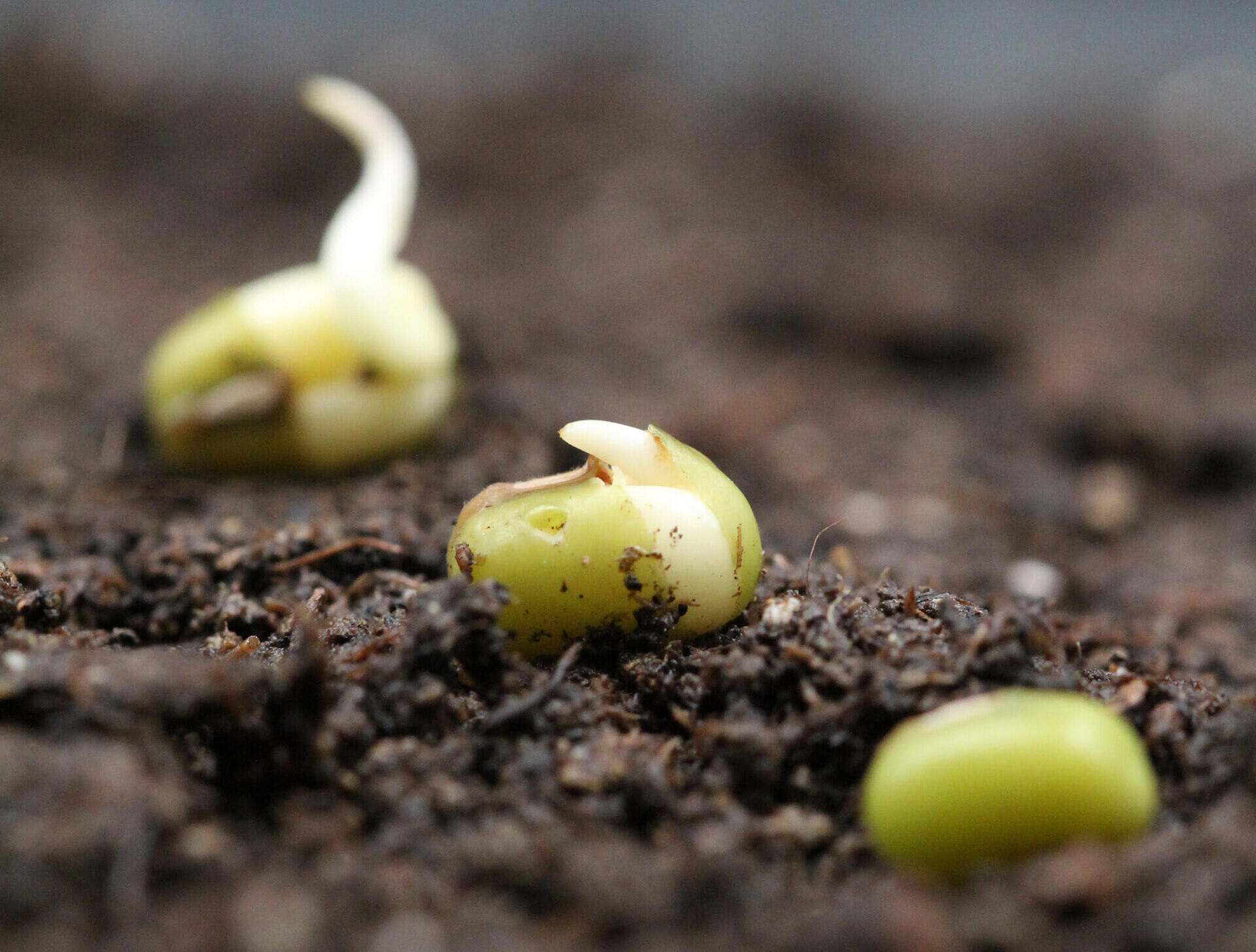
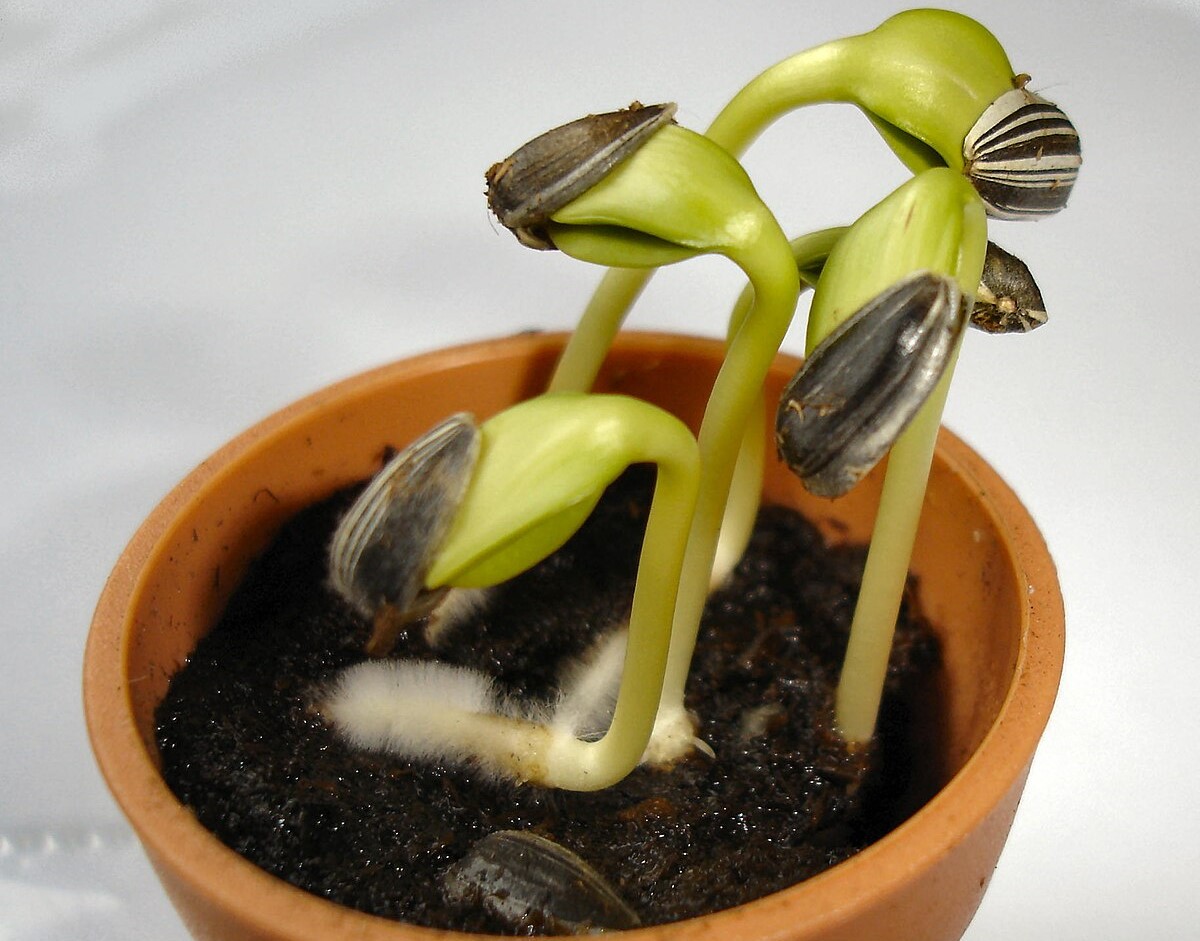
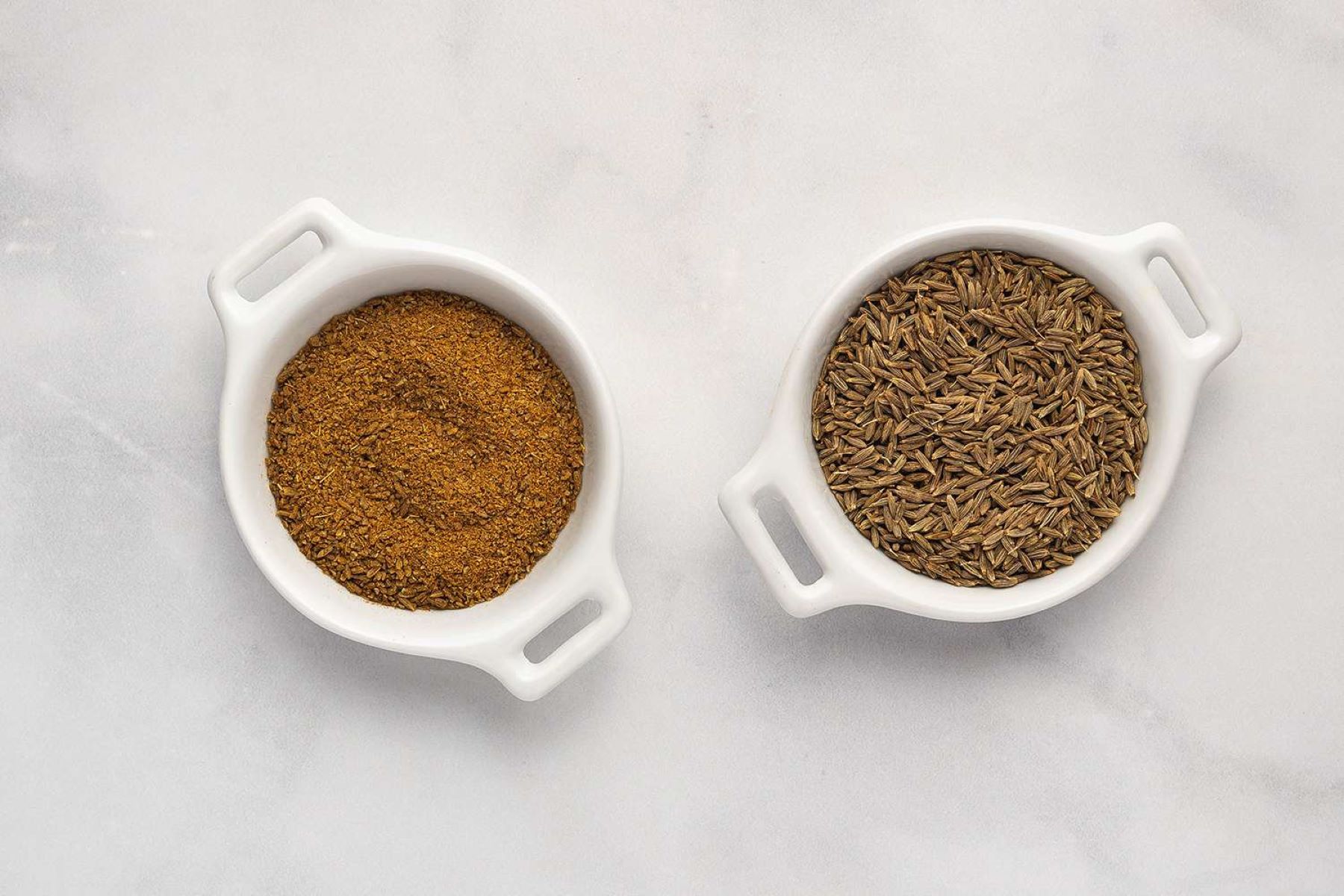




0 thoughts on “What Does The Bible Say About Seeds”